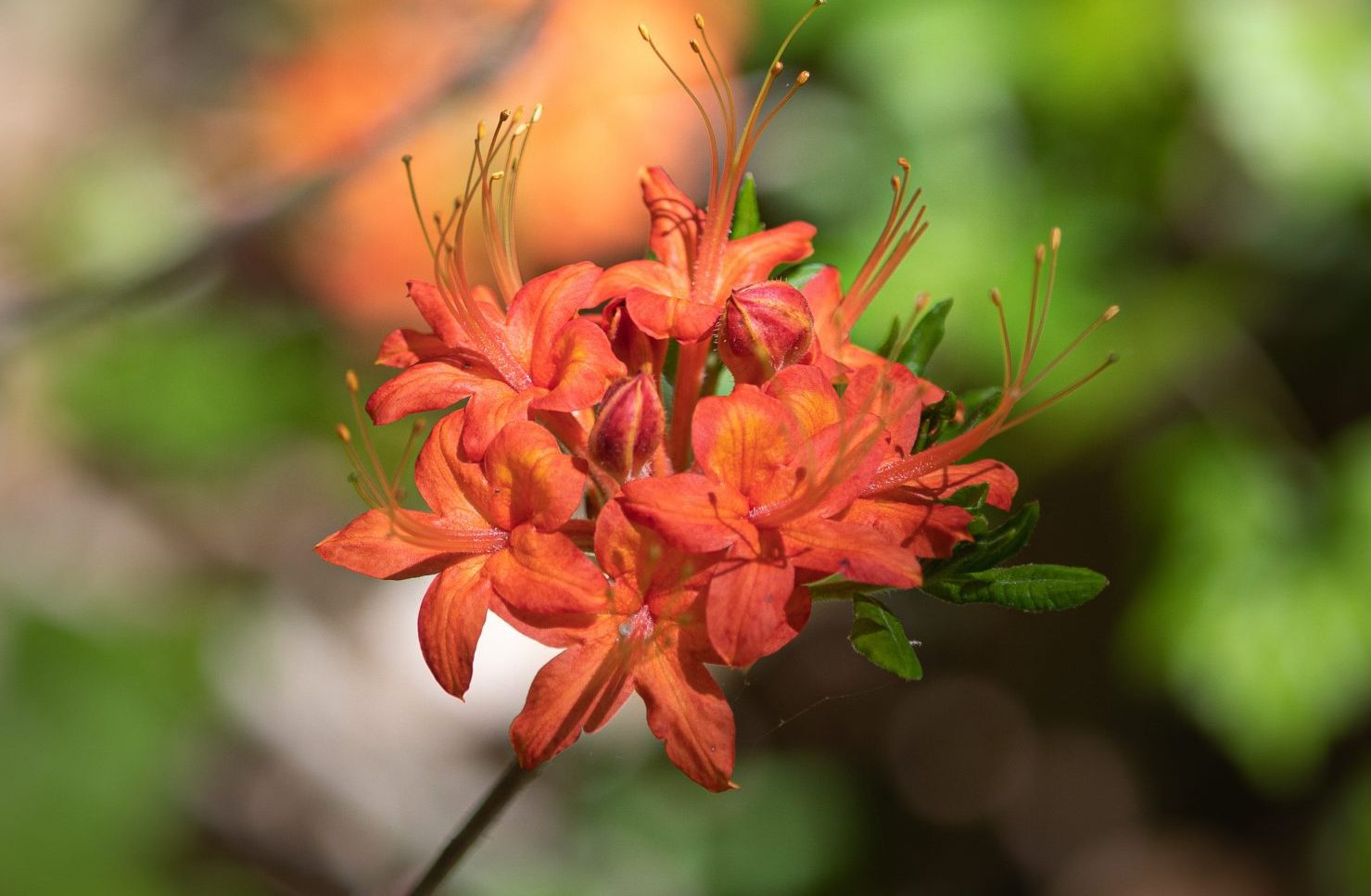Forestry & Wildlife

Whether you are planting in a garden, a meadow, or a woodland, selecting native species is an important component. Alabama’s biodiversity depends on native plants. The United States Department of Agriculture (USDA) defines biodiversity as “The variation among living organisms and the ecological complexes of which they are a part.” Simply stated, this means the number and variety of living things in a specific region. Native plants support pollinators such as bees and butterflies as well as beneficial insects and songbirds. The insects that birds depend on evolved with the native plants that were commonly found throughout the state. However, due to expanding development and the selection of non-native ornamental species, many of our native plants have been replaced with non-native and often-times invasive species. While many of the ornamental plants are beautiful, they create a biological desert for Alabama’s wildlife.
What is a Native Plant?
Native plants are plant species that grew in Alabama prior to the arrival of European settlers. These plants include grasses, wildflowers, perennials, vines, ferns, shrubs, and trees that covered the landscape before the settlers arrived. Species like switchgrass, oakleaf hydrangea, and flowering dogwood were commonly found in Alabama.
Benefits of Selecting Native Plants
When planting, choosing native species is always the best option. Native plants and trees support and preserve Alabama’s biodiversity. The development of urban areas has led to more expansive lawns and the planting of exotic non-native species. This creates an ecological desert for pollinators and beneficial insects.
Non-native species are often invasive. An invasive species is one that is growing outside its natural region. Many of these species such as mimosa trees and wisteria escape cultivation and become invasive. They spread into natural areas and become a threat to native plant communities. With the loss of native species comes the threat to pollenating insects and without insects to pollenate our crops, we all suffer.
Native plants support our wildlife by providing valuable habitat. They provide insects that birds depend on. They also provide cover for a variety of wildlife including quail, turkey, and rabbits. In addition to all these benefits, native plant species have evolved in Alabama’s climate with our soils. This makes them well adapted to our weather and soil nutrients, so they are much easier to care for.
When shopping for plants, do your research and look for native species. If there is a non-native that you like, there is almost certainly a native species that will flourish.

